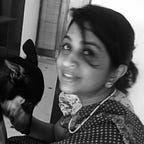Knife: A book we all must read
I was in high school when Salman Rushdie published “The Satanic Verses” and the Ayatollah Khomeini passed a fatwa against him. Thirty three and a half years later, my son was in high school when a lone man leapt out of the audience and stabbed him multiple times with a knife with the intent to kill. The would be assassin, who Rushdie chooses to call “A” had not even been born when the fatwa was passed; nor had he read (or shown any inclination to read) either the book that brought on the fatwa, or any other book written by Rushdie. He must have known he could not get away; yet, he chose to give up his entire life to fulfil the decades old threat.
Salman Rushdie could have chosen to go into the mind of A to try to understand how someone who by all accounts was a regular guy from New Jersey became sufficiently radicalised to do what he did. He could have chosen to write about religious fanaticism and hate as he had done in the aftermath of the Charlie Hebdo murders- “religion, an ancient form of unreason, when combined with moder (technology) becomes a real thread to our freedoms”. Instead, he chooses to put the attack behind him, and he writes about reconstructing happiness.
The power of the book is in the fact that he rises above the incident that changed his life forever. He describes the night before the attack as the last innocent night of his life. He looks at the moon, and recreates how his brilliant mind jumped from one literary allusion to another spanning cartoons, silent movies and short stories. He keeps going back to the last innocent night of his life, but he goes back to reclaim himself because he doesn’t want the attack to define who is as a person or as a writer. Throughout the book, he makes similar connections. He talks of authors and poets, of how knifes appear in literature and of how some authors had close encounters with the knife. He has read extensively, thought extensively, and he distils the best of his throughs and reproduces them in this book.
Though he has no desire to meet A, Rushdie conducts an imaginary trial with him where he attempts to put himself in the mind of the unsuccessful assassin. Even through the trial, he is unable to understand his motivation. His statement about religion should be self evident, but sadly isn’t- “Many people, liberal as well as conservative find themselves and difficulty when otro criticise religion, but if he could simply make the distinction between private religious faith and the public politicised ideology, it would be easier to see things as they are to speak out without worrying about offending sensibilities”
Knife is also an intensely personal book. He describes his relationship with his wife, Eliza, as an intensely personal one in the world of social media. After this incident, they know that they can no longer go back to the old degree of privacy. Instead, he talks about her, and how they strive to create happiness together. He describes a photoshoot at Central Park where the camera drew attention to himself and people stopped to see what it was pointing at. People recognised him, they smiled at him, they gave him a thumbs up, and they moved on. “I loved being there with my fewll citizens, all of us celebrating life in our own fashions.” The photograph which Eliza took of him that day which had him wreathed in spring blossoms “was an emotional photograph. There was love on both sides of the camera. It was a photograph of love.”
Rushdie lets you get deep into his mind. He shows himself at his most vulnerable when he talks of the medical procedures, and of the psychological trauma he has to deal with. You almost wonder how it is possible for someone to expose himself as much as he does when he speaks, for instance, of his fear of blindness and how close he came to that. Yet, he recognises the gift of “second chance” and quotes Raymond Carver who after being told he had six months, got an extra decade- “I’ve had ten years longer than I or anyone expected. Pure gravy. And don’t forget it.”
I end with one extract from the book, which says more than I ever can:
“During those empty sleepless nights, I thought a lot about The Knife as an idea. When a knife makes the first cut in a wedding cake, it is a part of the ritual by which two people are joined together. A kitchen knife is an essential part of the creative act of cooking. A Swiss Army knife is a helper, able to perform many small but necessary tasks, such as opening a bottle of beer. Oxcam’s razor is a conceptual knife, a knife of theory, that cuts through a lot of bullshit by reminding us to prefer the simplest mailable explanations of things to more complex ones. In other words, a knife is a tool, and acquires meaning from the use we make of it. It is morally neutral. It is the misuse of knives that is immoral.
Language too was a knife.”
Personally, I have always been too intimidated by Salman Rushdie to attempt to read his books (Victory City was an exception, and I loved it), but this is a book I would recommend to anyone who has thought about religious freedom and the freedom of expression (and of how the two may be in apparent conflict), to anyone who loves literature and wants to understand how a brilliant mind works, and to anyone who seeks to understand how it is possible to recreate happiness over tragedy.
